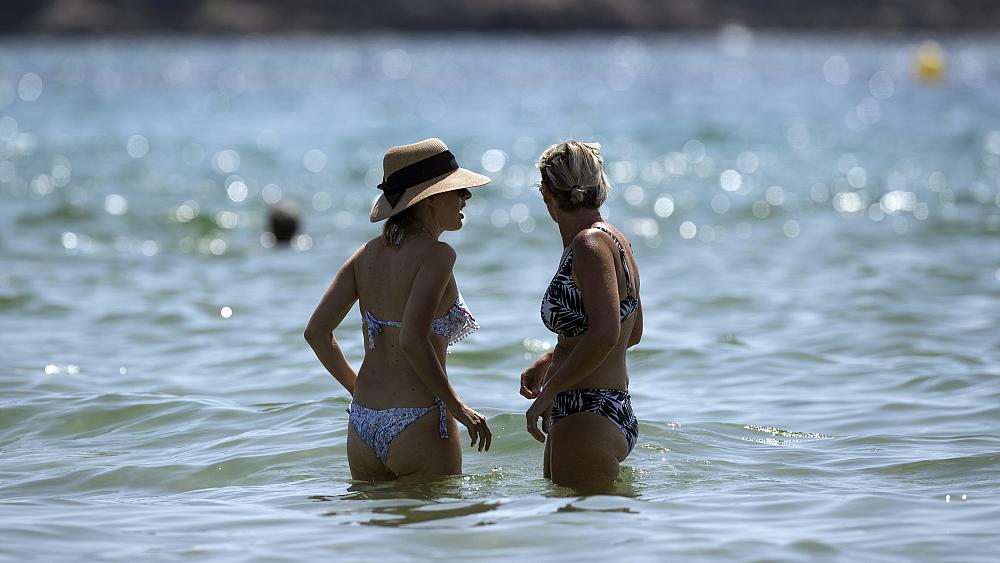France’s interior minister ensured that no one will be stripped of the right to sunbathe topless.
It comes following an “incident” on the beach of Sainte-Marie la Mer, south-west France, where three women got asked by police to cover up after complaints by an “uncomfortable” family with children on August 20.
Interior minister Gérald Darmanin said that the local administration was in error, stressing that “freedom is a precious commodity.”
The decision by the local authorities caused an uproar in France and on social media, prompting the national spokesperson for the Gendarmerie to clarify the situation.
“You will always see me in uniform”, said ironically female lieutenant colonel Maddy Scheurer, “but the practice of tanning topless is well authorised on the beach of Sainte-Marie la Mer”.
The Pyrénées-Orientales Gendarmerie said that the officers were just trying to calm the situation but acknowledged their blunder.
Topless bathing is legal in France, though local authorities can impose clothing rules in specific areas.
Toplessness has caused controversy for centuries, and is heavily associated with religious and cultural norms. In Victorian England, for example, women would often change into a swimsuit (fully buttoned up and accomanied by knitted tights and sandals) inside a contraption known as a ‘bathing machine’. This was basically an enclosed cart that would be wheeled into the sea so the bather could emerge the other side without being seen.
But it’s not just female nudity that created a furore. In the 1930s, the sight of Clark Gable’s bare chest in ‘It happened one night’ was practically a scandal.
Even in 2020 the feminist debate is split with physical freedom in one corner and sexualisation in the other.
Indeed the reigniting of the debate couldn’t be better timed. Wednesday is Women’s Equality Day 2020.
Related posts:
Views: 0
 RSS Feed
RSS Feed

















 August 26th, 2020
August 26th, 2020  Awake Goy
Awake Goy 
 Posted in
Posted in  Tags:
Tags: 
















